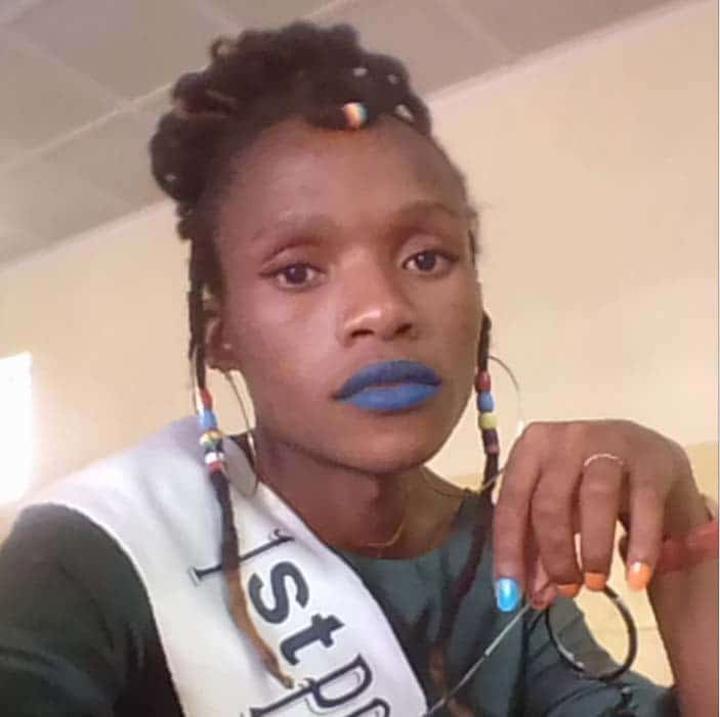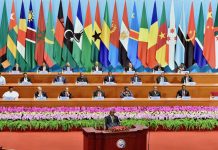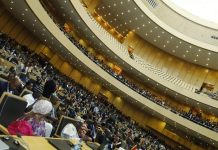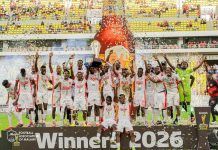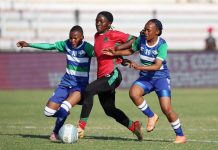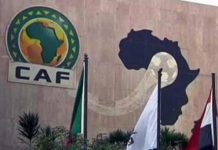Africa-Press – Lesotho. Until last Sunday, Pete Buttigieg’s name wasn’t known beyond his Indiana town of South Bend, where he has served as mayor since 2012. The 37-year-old former Rhodes scholar announced himself internationally when he officially launched his bid to become the Democratic Party nominee for the 2020 United States presidential election and challenge Donald Trump for the White House.
Despite his relative inexperience, the former US soldier has surged in the polls in recent weeks, propelling him from the margins to the front of the pack. His campaign has so far focused on gun control, climate change and LGBT rights and other progressive issues he hopes will appeal to millennial voters
That he is the youngest entrant in a crowded field of Democratic candidates that features Vermont Senator Bernie Sanders, 77, and 76-year-old Massachusetts Senator Elizabeth Warren hasn’t gone without raising eyebrows.
But the fact that should he win, Buttigieg would be the first openly gay US president has set tongues wagging, not only in his culturally diverse homeland, but has also directed the spotlight on the rights and treatment of homosexuals in Lesotho.
Layla, a 24-year-old a trans-woman, born Relebohile Motaung says “coming out” and revealing her sexual orientation to her family was one of the hardest and best experiences of her life.
She says she was ready to take just about any punishment from them but fortunately for her, she got off easily. “They never freaked out. I have heard stories of how bad people have been treated all in the name of revealing their identity, but my story was different,” Layla says.
Layla was born male, but she identifies as a trans-woman and therefore prefers to be referred to as a “she”. She, however, says there are people who are gender-non-conforming who prefer to be referred to as “they”.
Layla feels their wish should be respected as it is rather offensive to make such people choose between the pronouns “she” and “he”. “I find it unfair that we only have two pronouns legal in Lesotho being he and she.
I believe in freedom and if Lesotho is really a free country then it should as well put in use the pronoun ‘they’ to accommodate everyone to make them free as well so that they will not hesitate or be afraid to seek for services, any service,” Layla says.
She had a tough time growing up in rural Ha Marakabei and says, according to Basotho tradition, if a child is born a male, he is expected to behave according to his gender and failure to do so is a taboo.
She says she was always discriminated against but stayed strong and positive. She would play with girls and sometimes they would go up the mountains to fetch firewood.
“I played litolobanya and I was on the front line of the school choir. It is not something I invented or inherited as I grew up, but it is something I was born with. It is naturally within me; ever since I was a child I had always been me, Layla,” she recalls. Coming out has engendered unbridled happiness for her.
She now feels free, hence the almost permanent smile she wears and only wishes people could stop imposing their cultural and religious beliefs on her with the aim to contradict who she is.
She emphasises God created both heterosexuals and homosexuals in his own image and says they are no different, adding it is just a small matter of sexual orientation, gender identity and expression. Layla says labelling homosexuality evil and demonic has become a national pastime, but she insists “they are here to stay”.
A Freedom House report on society, freedom of expression, human rights and LGBTIs of 2018 notes that lesbian, gay, bisexual, transgender and intersex (LGBTI) people around the world face discrimination, persecution and violence simply for expressing who they are and who they choose to love.
It further shows that consensual same-sex conduct is criminalised in more than 70 countries, with punishment including fines, flogging, and imprisonment and, even capital punishment in seven countries.
According to it, laws that treat LGBTI people as criminals dehumanise them, reinforce stigma and prejudice, and provide legal cover for serious human rights violations.
“LGBTI people are targets for torture or ill-treatment by the government not only for their political beliefs or activism but also for their identity. For many, violence begins at home, in the classrooms and halls at schools, at the workplace, and in the streets.
“Lesbians, in particular, are victims of grave human rights violations, including “corrective rape,” forced pregnancy, and “honour killing,” not only because of their sexual orientation but also because of their gender.
“Transgender people face alarming levels of violence at the hands of law enforcement and individuals, with little accountability placed on the perpetrators.
“Those defending the rights of LGBTI people, regardless of their sexual orientation and gender identity, also risk harassment, threats to their lives and the security of their families, and official persecution,” the report reads.
Psychologist Mokhu Mokhali describes sexual orientation as a term used to depict patterns of romantic, emotional and sexual attraction, sense of personal and social identity.
According to him, culturally people were attracted to heterosexual identity which is male-female attraction, but now people are breaking out of the mould and are their chosen sexual orientation – either heterosexual, homosexual or bisexual.
“Homosexuality which is the one understood to be a taboo by the majority of Basotho in accord with their references still stands as a major challenge.
“The issue is controversial in the sense that our attitudes and personalities are shaped by our heredity, social groups, what community admires, biological formation, imitation and upbringing,” Mokhali says.
He adds: “No one is dictated to be heterosexual but factors like man-made figures play a role. Homosexuality, on the other hand, can result due to hormonal imbalance, upbringing, peers and imitation.
” He further explains that at the adolescence stage, sexual desires arise, and sexual identity comes in the spotlight.
It is at this stage that one has to face their intrinsic identity. Failure to do so results in low self-esteem, lack of confidence and dishonesty to oneself.
He also emphasises that at this stage a person recognises that in actual the fact they belong to a certain group, have similar attributes, traits and feel overjoyed.
He, however, notes that on the other hand, one can feel that they are trapped, lack emotional satisfaction, actualisation, true being and have been doing things that they didn’t like.
He, as a result, advises that if one experiences this, they should find someone they trust and open up to about their condition or seek professional help.
“Community as well also needs to be educated about the different sexual orientations and not judge others because everyone has a right to life and opinion. They should also link themselves to same sex groups,” Mokhu urges.
He further strongly emphasises that one should first and foremost come to unconditional self-acceptance because failure to do so may give the community the leverage to never accept them and even discriminate against them.
“LGBTIs are not only ones that need guidance and counselling but their parents too.
“Parents need thorough education about the difference in sexual orientation and also need to be offered professional help so that their understanding can improve and to never judge the route their children choose,” he says.
But cultural activist and vocalist Moletsane Liau, who is also the leader of Lekhotla La Mekhoa le Meetlo ea Basotho reckons culture has everything to do with one’s sex orientation.
He says the LGBTI community exists because older generations did not abide by Basotho’s cultural norms. He therefore contends that a lot of things could be avoided should Basotho not choose to turn a blind eye to their roots and way of living.
Liau also emphasises the LGBTI community is not and will never be in conformity with culture. He, however, shows that he does not by any means promote discrimination against the community as they also form part of the nation. But he urges Basotho to take extra precautions when dealing with culture-related matters to prevent unsavoury yet avoidable incidents occurring.
“The reason I have since advocated for a cultural leader to be represented in parliament was so that Basotho could be educated and be well-informed about their culture for we cannot shy away from the fact that culture is what makes us a nation, it is like the father figure of Lesotho,” Liau says.

